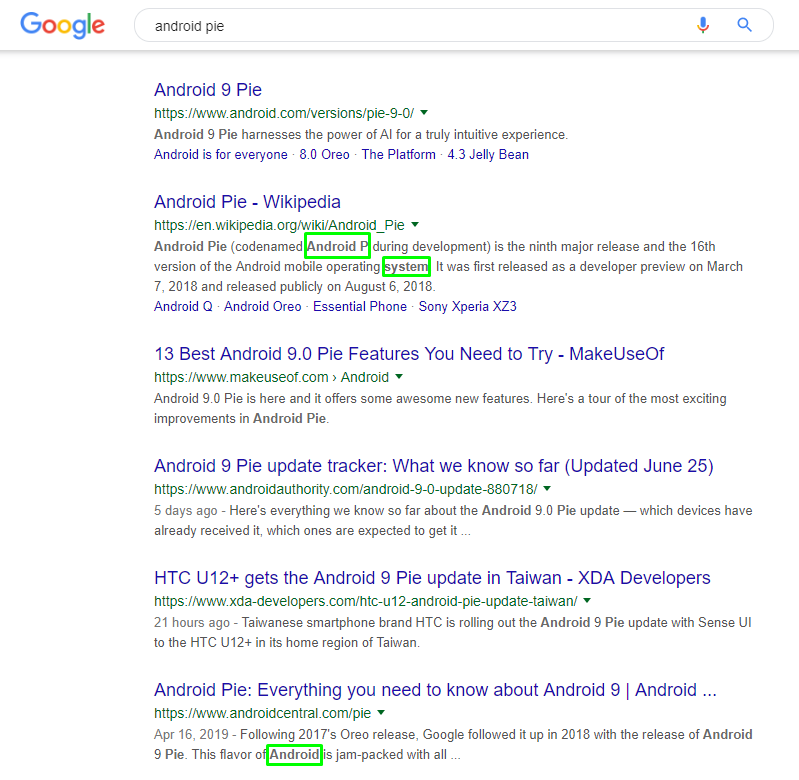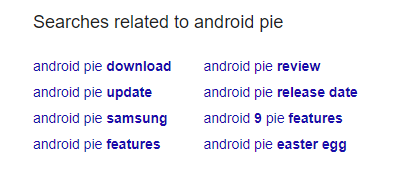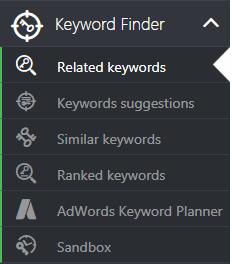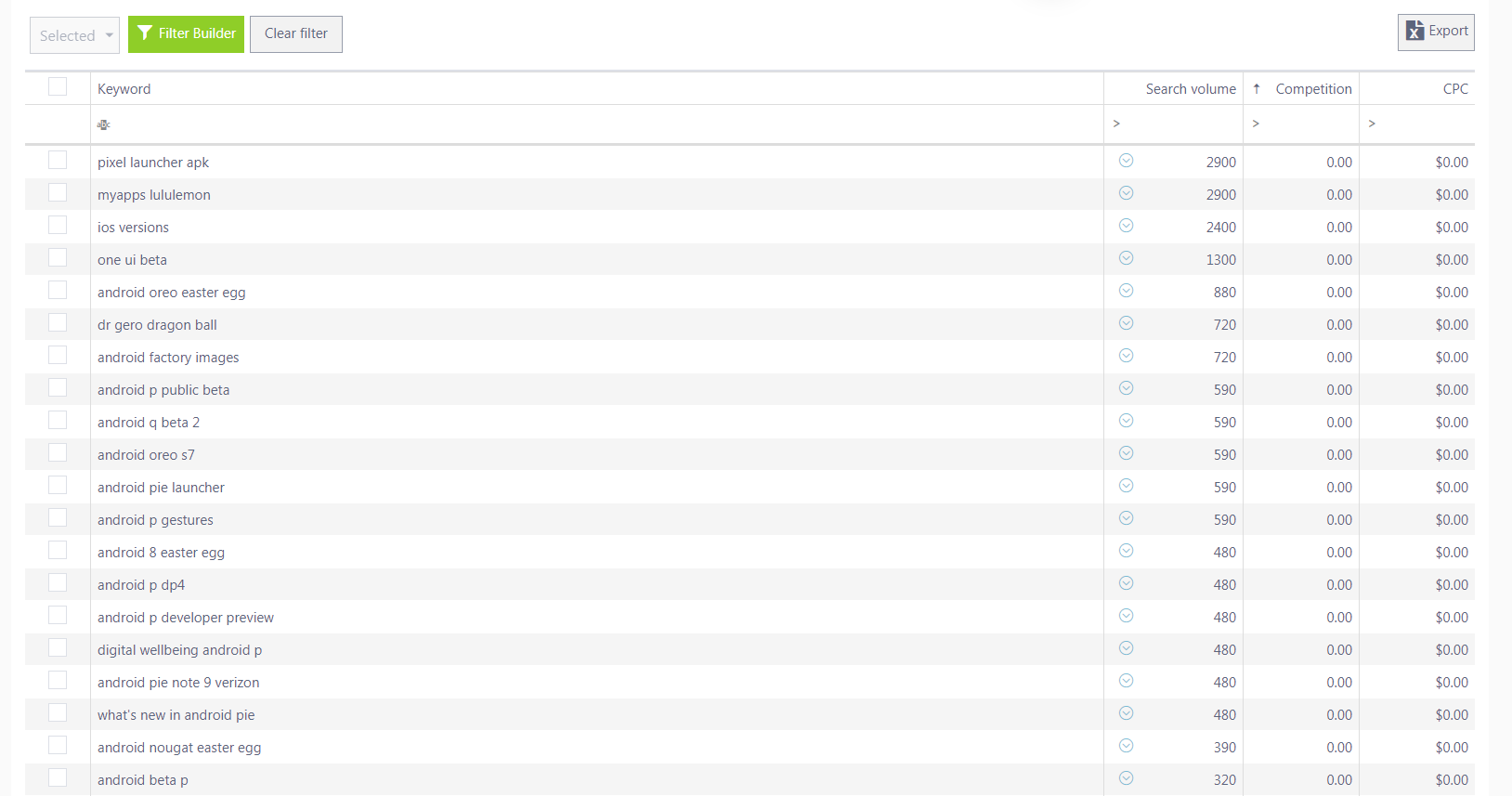What Are LSI Keywords and How Can They Improve Your Rankings?
4 July 2019 Leave a comment KEYWORD RESEARCH
Looking for effective techniques to improve your positions in SERPs? You’re not alone with this puzzle. On-page optimization often correlates with Google updates, that’s why SEO experts include LSI (Latent Semantic Indexing) keywords in their tactics. But what’s so special about them?
If you’re searching for a detailed explanation, here it is. How LSI keywords appeared, why they matter for SEO, where to find, and how to use them – we’re covering it all today.
LSI Keywords Explained
LSI (Latent Semantic Indexing) keywords are the terms used in one context which help search engines to understand the website’s content better. Important note: LSI keywords are not synonyms. Instead, they relate to a common subject (“coffee”: “americano”, “filter”, “arabica”).
At the very beginning of SEO, search engines understood the page’s content with the help of keywords used in the text. For example, you wrote an article about labrador puppies. If you use “labrador puppies” here and there in your writing, Google would probably think “Okay, this article is about labrador puppies”.
Not surprisingly, it led to keyword stuffing and low-quality reading – content writers and managers just wanted to be sure that Google would fully understand them. But those days are gone, and Google has become much smarter. Now the goal is to figure out the page’s overall topic.
Brief Historical Overview
It all began in February 2004 when Google announced a new algorithm update also called “Brandy”. There were several significant changes, and LSI was one of them.
Latent Semantic Indexing aimed to find words that match semantically, which allowed understanding the overall article’s context.
Some SEO experts believe that it’s about understanding synonyms, but it’s only partially true. Rather, these are the words that can be used in the same context and be connected with the main keyword. Any person has associations with a certain noun, verb, or concept, and Google learns to understand these associations.
Let’s say now you’ve written an article about Siamese cats. You probably used the “Siamese cats” keyword in title tags or alt texts, but along with that, you used “Asian cat”, “cat native to Thailand”, “Balinese”, etc. Google processes this information and then understands that the main topic is well… Siamese cats.
This concept looks much better not only because it gives more freedom to copywriters but because it helps Google provide searchers with more relevant information.
What Benefits Do I Get with LSI Keywords?
Yes, Google is more advanced now, and web users get what they’re looking for, but what about benefits for SEOs? That’s what you get with LSI keywords:
- Non-spam content. Using one keyword in each paragraph won’t do any good nowadays. In fact, it can even harm your content strategy because Google interprets repetitive keywords as spammy content.LSI keywords, in their turn, allow you to avoid stuffing because there can be dozens of keywords connected with a specific context. The main idea here is not to use one word again and again but to surround the main keyword with a number of different keywords evenly distributed throughout the text.
- Lower bounce rates and more time spent on the page. The more LSI keywords you use, the more hints Google gets about the article’s topic. Subsequently, users who get to your page won’t be disappointed – the search engine gave them the necessary info.Naturally, a reasonable number of LSI keywords allows creating a pleasant reading, so people are more likely to stay and read an article till the very end.
- Less competition. You have more chances to improve rankings using keywords with low competition – everybody knows this good old truth. A list of keywords with the same context do the same – you can create your own combination of keywords that will lead a potential client to your website.This benefit is particularly useful for e-commerce platforms. If you provide enough information about the product based on LSI keywords, big chances are you’ll get more leads in a while.
- Higher rankings. How many times have we heard about Google’s focus on relevant and high-quality content? Undoubtedly, scanning every page for its relevance is a complex process, but LSI keywords might play a big role in that.The explanation is simple: the better Google understands the context, the more relevant the content appears to be. Your article will be considered credible by the search engine, which automatically increases your rankings.
Where Can I Find LSI Keywords for My Website?
Before deciding where exactly you should put an LSI keyword, you should have a tool providing a complete list of keyword ideas. To find a couple of keywords for a start, you don’t have to use additional SEO tools – Google itself will help you out.
Google Search
Let’s start with typing your main keyword. In our case, it’s “Android Pie”. Interestingly, SERPs already have a couple of hints for us – have a look at the bold words in the meta description.
Of course, this short research can’t be a foundation of a solid SEO strategy, but still, it provides an insight into how Google algorithms “perceive” this specific keyword.
Google Autocomplete
There’s hardly any more popular term among SEO experts as Google autocomplete. Nevertheless, you can use it even for the LSI keyword research.
Each word combination you see in the autocomplete is already connected semantically in Google algorithms, so it can give you a hint on the LSI keywords for your project (you’ll see the same keyword ideas in searches related to your main keyword):
That was a great chance to know LSI keywords a little bit closer. But what if you have intentions to build a substantial SEO strategy?
Keyword Finder by RankActive
To automate LSI keyword research, you’ll need a reliable SEO tool, and our Keyword Finder is the right choice as it provides hundreds of ideas in several minutes.
Follow these steps to get a full list of LSI keywords:
- Create a new project on the RankActive platform.
- Click on Keyword Finder and then pick Related keywords in the dropdown. Here you will find LSI keywords from Google Related Search.
- There are three parameters you have to define: a country, a language, and a general keyword. Click on Apply then.
- Our general keyword was “Android Pie”. We got nearly 800 keyword ideas and then filtered them according to the search volume and competition:
There are more than enough ideas to help you with a specific article. You should choose keywords wisely: pick only those that match the article’s goal and main title.
LSI vs. Long-Tail Keywords
Do LSI keywords remind you of long-tail keywords? Both types of keywords may contain more than three words, so the natural question is, why should you research LSI keywords separately?
The key difference: long-tail keywords help narrow down the search scope while LSI keywords broaden it up.
Using keywords with a similar context in an article, you demonstrate your expertise in a particular topic. That is the reason why sometimes you get organic traffic from keywords that you’ve never used in your SEO strategy.
Where Can I Find LSI Keywords for My Website?
For LSI keywords to serve you well, you can’t inject them randomly into your post. Remember that keywords are signals for Google crawlers, so how to make your signals noticeable?
Place Keywords Naturally
You can’t add too many similar keywords into one text – it is usually evident to both readers and Google crawlers.
When it comes to LSI keywords, things change a little: your readers probably won’t notice which term exactly is a keyword. This is a reason why some bloggers tend to add as many context keywords as possible, but will they benefit from it?
The trick here is to pick a limited number of LSI keywords that really matter – you feel that an article would be incomplete without this particular context. Let the reading flow naturally and keep in mind that your final goal is high-quality content. Plus, you shouldn’t overuse one keyword throughout the text.
Target Specific Positions
Apart from the main article’s body, there are several places in the content where LSI keywords attract more attention. Depending on the article’s structure, consider these positions:
- The main title
- H1, H2, and H3 tags
- The images’ alt texts
- The links’ anchor text
- The article’s introduction or conclusion.
Get Higher Rankings with the Relevant Context
How much information can a web user get with one query? It’s dozens of pages and hundreds of links. But Google develops its algorithms not for quantity but for quality. Latent Semantic Indexing has taught Googlebot to understand search queries in a human-like way: words make sentences, and sentences create context.
As an SEO expert, you can make your keyword strategy smarter by adding LSI keywords. If these words are placed naturally in the text and match the article’s main keyword, expect your rankings to grow faster. And don’t worry about finding a solid list of keyword ideas – RankActive’s Keyword Finder does all the work in a minute or two.
Tags: Google update, Keyword Finder
Like this article? There’s more where that came from.
- 5 Questions to Ask Yourself Before Paying for Rank Tracking Software
- 5 Serious Mistakes Beginner SEOs Make and How to Fix Them
- Why We Use Google’s New Link Attributes and You Should Too
- Title and Description in 2021: Why Google Rewrites SEOs’ Meta Tags
- What We Should Learn From Google’s “About This Result” Feature







